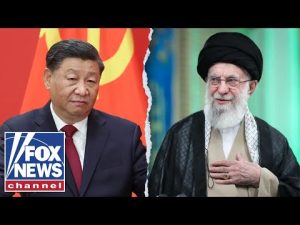In a world where journalism should thrive on honesty and transparency, recent developments paint a different picture. It seems that the battle between genuine reporting and political bias is more heated than ever. Two former reporters from Politico, Mark Caputo and Tara Palmieri, have made some eye-opening claims about how their former employer suppressed key stories that might not have been friendly to the Biden administration. According to these journalists, they were explicitly directed to avoid covering the Hunter Biden laptop story. This raises troubling questions about the integrity of one of the nation’s prominent news outlets.
It’s hard to imagine a newsroom where the editors decide which stories are “off-limits,” particularly based on political affiliations. Caputo shared his experience of trying to bring attention to the Hunter Biden laptop saga, only to be met with a claimed mandate to steer clear of the topic. The idea that the leadership at Politico, a platform that presents itself as a bastion of political journalism, would stifle such important discussions for fear of upsetting the Democrats is not only disheartening but a significant blow to journalistic integrity. By actively turning a blind eye, they arguably failed their responsibility to uphold the truth.
Adding another layer to the unfolding drama, the grandson of the late President John F. Kennedy, Jack Schlossberg, expressed his displeasure regarding former President Donald Trump’s plans to declassify JFK files related to his grandfather’s assassination. Schlossberg, who fancies himself a journalist, accused Trump of using historical tragedies as political props. Many in the Kennedy family have long requested to review these documents before they are made public, citing a desire to handle sensitive family history with caution. Despite these requests, the notion of imposing a pre-release review raises questions. Should history be altered or shielded for the sake of personal comfort?
Those who question the motivations behind Trump’s decision to release the files may warrant a closer look at the broader implications of withholding information from the public. Is transparency so daunting that it must be avoided to protect certain legacies? Reflecting on the voices of families affected by historical events makes it clear that there must be a balance between public interest and personal sensitivity. However, one must also consider if the public has a right to access these records, especially given their significance in American history.
As the conversation shifts back to journalism, critics warn that outlets like Politico might have developed a reputation for favoring Democrats in their reporting. While Caputo and Palmieri now seem eager to clarify their positions to win back Republican favor, some argue that their previous struggles to do their jobs should not be forgotten. According to various pundits, there appears to be a cyclic pattern of journalists enjoying a cozy relationship with political figures, all while failing voters and the public in their mission to provide objective news.
In this tangled web of manipulated journalism and muddied narratives, one thing remains clear: the need for a free and honest press is paramount. Citizens cannot rely on outlets that choose to obey orders over their commitment to the truth. As the boundaries between journalism and politics become increasingly blurry, it is up to the public to demand better. The stakes are high; it is not just about reporting the news; it is about preserving democracy, accountability, and the right to know. Only time will tell if the latest revelations will spark a change or if journalism will continue to choke in the dark corners of biased reporting.







